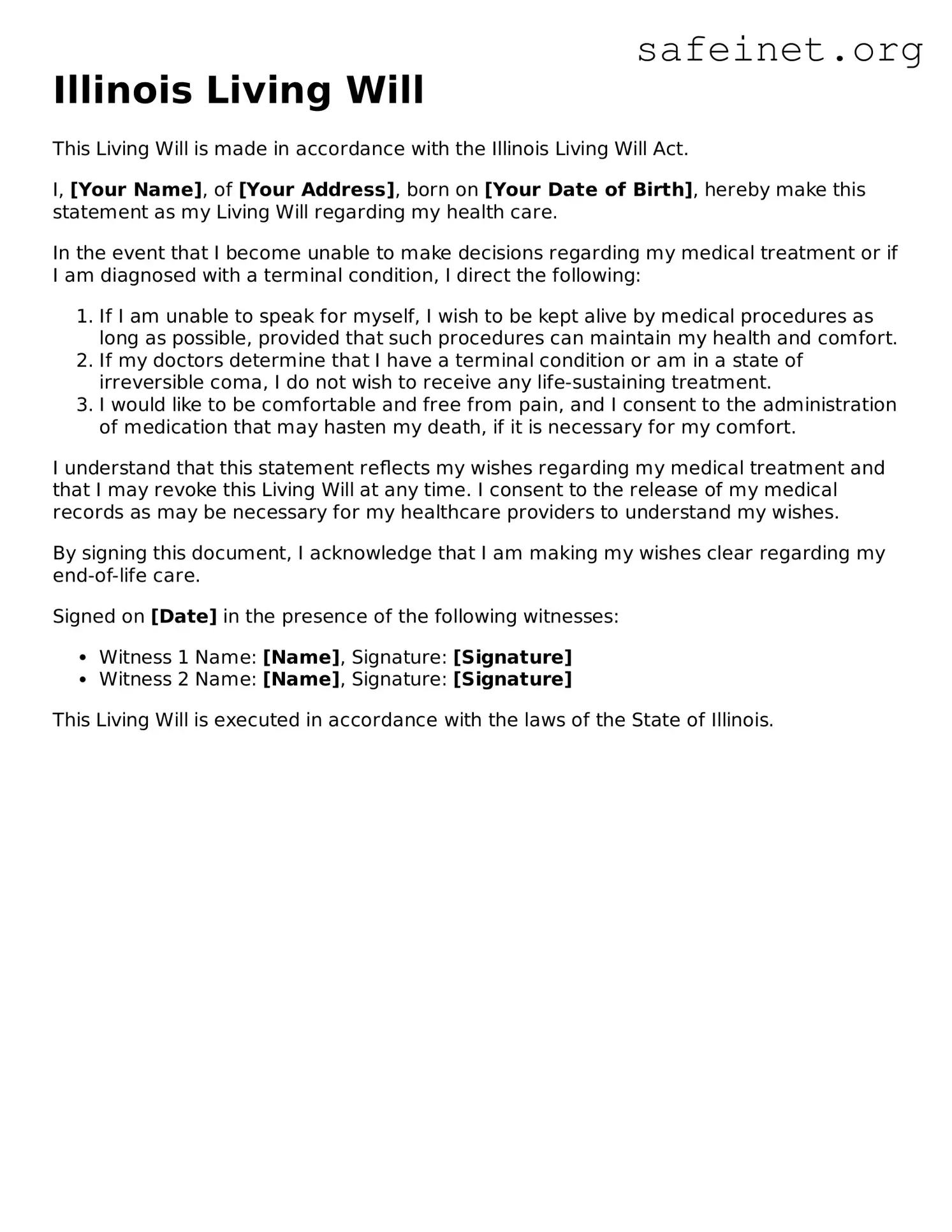The Illinois Living Will form shares similarities with the Advance Directive for Health Care. Both documents allow individuals to express their wishes regarding medical treatment in situations where they may not be able to communicate. In Illinois, the Advance Directive can encompass the Living Will and appoint a healthcare proxy, making it a more comprehensive document. Individuals can provide specific instructions about their medical care preferences and designate a person to make decisions on their behalf if they become incapacitated.
Another document akin to the Illinois Living Will is the Durable Power of Attorney for Healthcare. This legal instrument designates an agent to make healthcare decisions for another person. While the Living Will focuses on what treatments a person does or does not wish to receive, the Durable Power of Attorney grants decision-making authority, allowing an agent to adapt to unforeseen medical circumstances that might arise.
The Do Not Resuscitate (DNR) Order also bears similarity to the Living Will. While a Living Will outlines general health care desires, a DNR specifically instructs medical personnel to refrain from cardiopulmonary resuscitation (CPR) in the event of cardiac arrest. Both documents aim to respect a patient's wishes and provide guidance for healthcare professionals but differ in the specificity of medical interventions addressed.
The Physician Orders for Life-Sustaining Treatment (POLST) is another document linked to the Illinois Living Will. Similar to the Living Will, POLST translates a patient's treatment preferences into medical orders. While a Living Will expresses wishes in anticipation of future situations, POLST serves as an actionable set of orders for medical staff, intended for individuals with serious illnesses or limited life expectancy.
The Healthcare Proxy, closely related to the Durable Power of Attorney for Healthcare, allows individuals to authorize someone else to make healthcare decisions on their behalf. The Healthcare Proxy can act when a person is unable to voice their preferences, effectively complementing the Living Will by ensuring that decisions align with the individual’s wishes. Both documents prioritize patient autonomy while addressing different aspects of healthcare decision-making.
The Minnesota Health Care Directive shares characteristics with the Illinois Living Will. This directive combines functions similar to a Living Will and Durable Power of Attorney, allowing individuals to articulate their preferences regarding medical treatment and appoint a decision-maker. It serves as a comprehensive way to delineate care preferences, much like Illinois's approach to advance care planning.
The New Jersey Advance Directive also echoes the purpose of the Illinois Living Will. Similar in format and intent, it allows individuals to specify their healthcare preferences should they become incapacitated. The New Jersey form includes sections for a Living Will and designating a healthcare proxy, thus mirroring the dual functions often found in Illinois advance directives.
Lastly, the Florida Living Will presents another similar document. Like the Illinois Living Will, it enables individuals to express their preferences regarding life-sustaining treatments in situations of terminal illness or irreversible conditions. Both forms aim to ensure that personal wishes are respected in challenging medical circumstances, although state-specific guidelines and legal requirements may differ.
